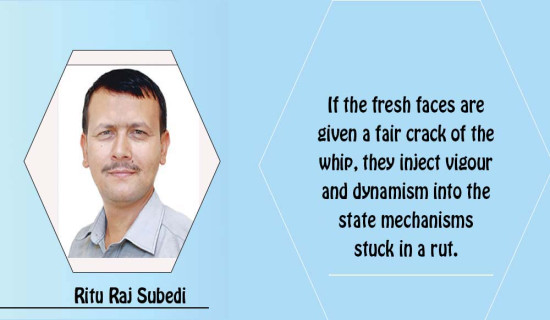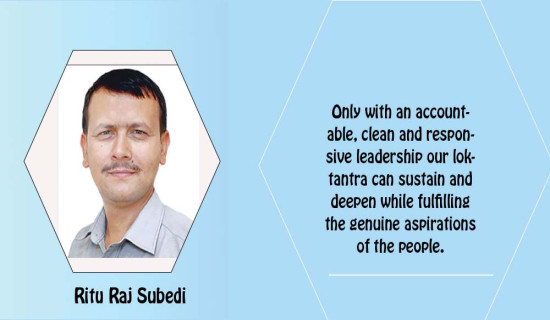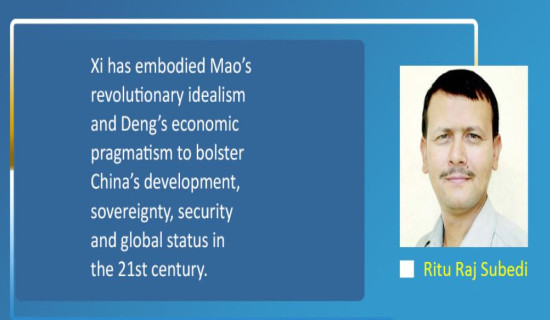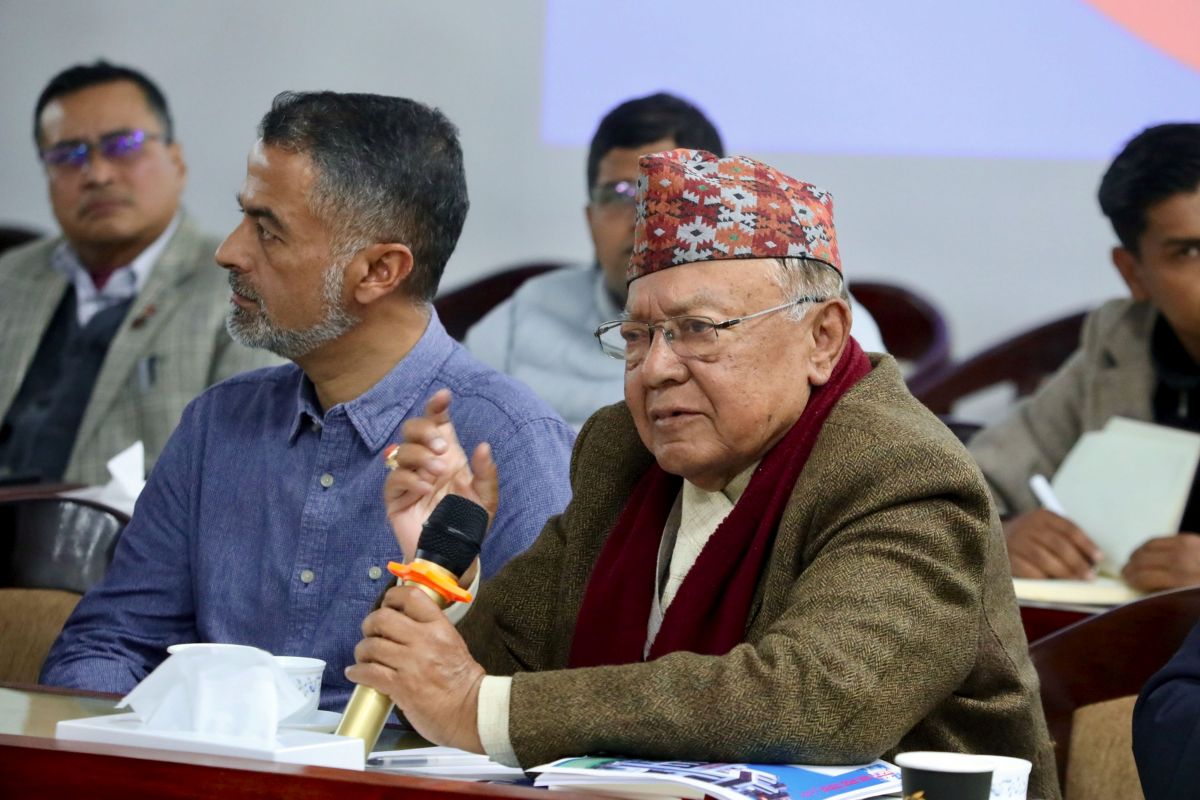- Friday, 6 February 2026
Triumph of Audacity Over Autocracy
The first democratic revolution, spearheaded by Nepali people in 2007 B.S. (1951), was an epoch-making moment in the history of Nepal. It overthrew the 104-year-old feudal autocratic Rana rule and put the n
Nepal-China Ties Reach Milestone
This year marks the seven decades of establishment of Nepal-China formal relations. The two nations are poised to observe the 70th anniversary of their diplomatic ties meaningfully, focusing on the speedy i
Heavyweights Switch Allegiance
With less than a year left for its 15th general convention, Nepali Congress (NC) is witnessing intense internal polarisation, making its battle for new leadership tough, complex and nail-biti
Consensus Must For Statute Revision
Following the formation of coalition government of Nepali Congress and CPN-UML about six months ago, the oppositional politics has drastically weakened in the country. In the parliamentary democracy, the role of opposition is cons
Shera Durbar, Dibya Upadesh And Independence
On Saturday, Prithvi Jayanti was observed organising a variety of programmes. The special day has been marked to commemorate the contributions of Nepal’s founding father Prithvi Narayan S
Meishan Blends Antiquity With Modernity
With its unstoppable march towards building a modern socialist state, China is rebuilding cities and revitalising the villages. Many cities have economically boomed and people are enjoying prosperity. The low-profile
Bolsters Nepal-China Economic Ties
It seems the debate on China’s Belt and Road Initiative (BRI) has slowed down at the moment. Prior to Prime Minister KP Sharma Oli’s visit to China early this month, the political spectrum w
Citizen Journalism Vs Traditional Media
In his video posted on X (previously Twitter) on October 27, 2024, Elon Musk said citizen journalism is the future. Supporting the role of social media, the American billionaire added, “The aggregate voice of the pe
Are BRI Projects Headed For Execution?
Following an agreement on the Framework for Belt and Road Cooperation (BRI) between Nepal and China during Prime Minister KP Sharma Oli’s visit to the northern neighbour, the possibility of imple
Is Unified Socialist In A Mess?
The political parties generally acquire their vigour and dynamism from their internal democratic exercises considered vital for their legitimacy and moral fibre. The bottom-up approach enhances the inner-party democracy for it
Statute Enhances Inclusive Democracy
The Constitution of Nepal, promulgated in 2015, has become nine-year-old. The historic charter has transformed the country into a federal, secular, and republican state. The country saw two election cycles since the n
Comes Up With Win-win Resolutions
The recent central committee (CC) meeting of Nepali Congress (NC) concluded with win-win resolutions. Party president Sher Bahadur Deuba has chosen a middle path to deal with the proposals presented by two general secretaries – Gagan Thapa and Bishwo Prakash Sharma. The establishment led by president himself and the dissidents were divided on Thapa’s organisational report and Sharma’s document on contemporary politics. Deuba stepped up to the plate to take both Thapa and Sharma into confidence, sending a positive message to the party’s rank and file. In doing so, Deuba even ignored his loyalists dead set on rejecting both the proposals as the establishment holds much sway over the CC. Thapa had proposed that the NC should not forge pre-poll alliance with any political parties, hold the general convention within 2082 B.S. and constitute a statute draft committee at the meeting that ran for more than three weeks. Similarly, in his report, Sharma floated the concept of exit policy
Political Will Key To Attaint Lofty Goals
It is no wonder that various schemes and projects incorporated into the government’s annual policies and programmes are repeated because they were/are not completed in the previous or current fiscal years. B
What Ails Our Loktantra ?
More than 18 years have elapsed since democracy was reinstated in 2006 following the collapse of king Gyanendra’s 14-month direct rule in the country. The April Uprising that is also called Janaandolan-II (second people’s movement), paved the way for the transformative structural changes. The Himalayan nation was converted into a secular, federal republic, abolishing the 204-year-old monarchy. The new constitution promulgated through the Constituent Assembly (CA) consolidated these landmark achievements. With this epochal upheaval, Nepali politica
CPC Centenary Journey Of Trials, Tribulations & Feats
In the West, communism is long dead but enormous success of the Communist Party of China (CPC) shows that when Marxism is adapted to the national realities, it becomes a reliable ideological instrument t

















